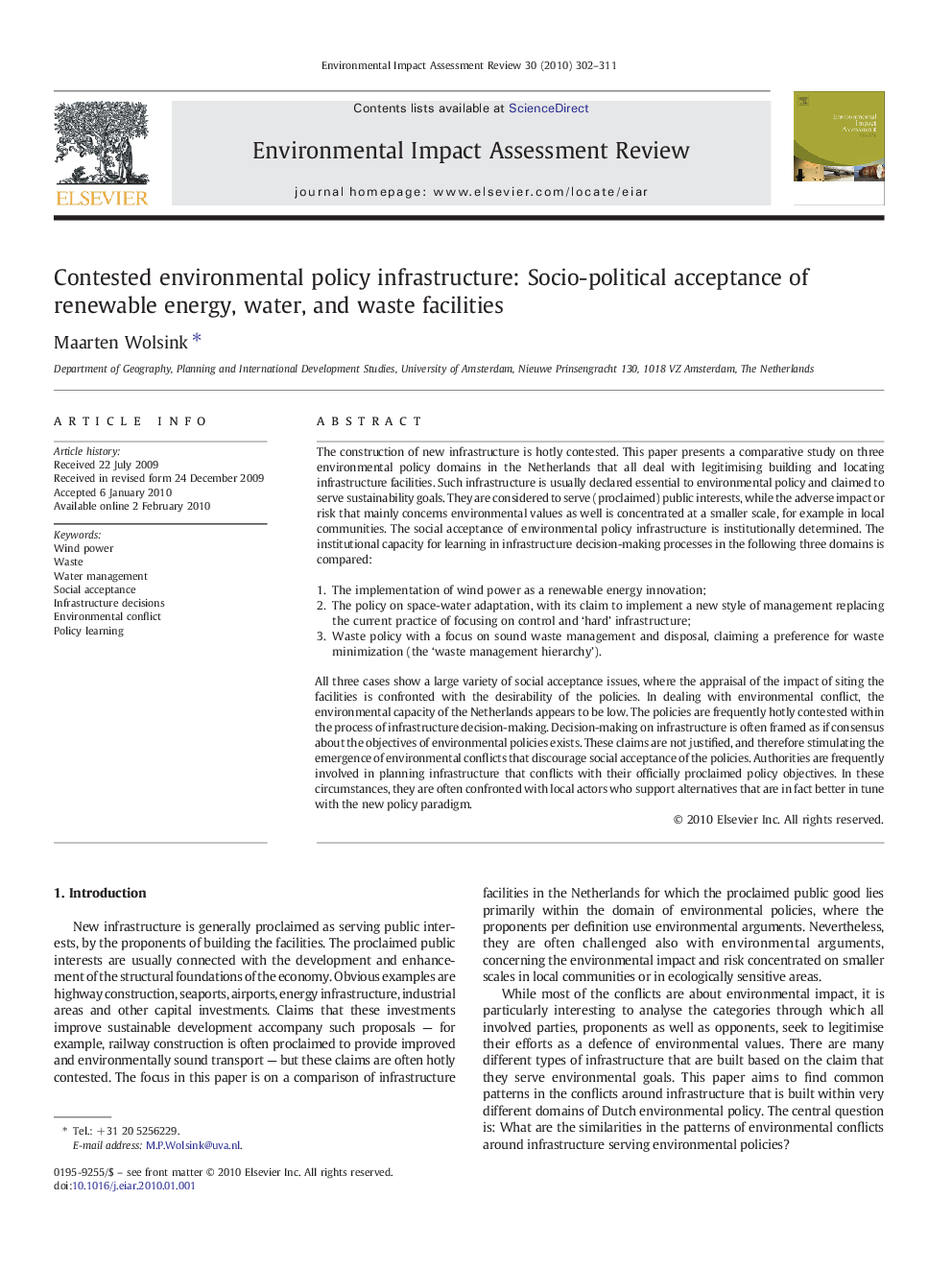| Article ID | Journal | Published Year | Pages | File Type |
|---|---|---|---|---|
| 1053114 | Environmental Impact Assessment Review | 2010 | 10 Pages |
The construction of new infrastructure is hotly contested. This paper presents a comparative study on three environmental policy domains in the Netherlands that all deal with legitimising building and locating infrastructure facilities. Such infrastructure is usually declared essential to environmental policy and claimed to serve sustainability goals. They are considered to serve (proclaimed) public interests, while the adverse impact or risk that mainly concerns environmental values as well is concentrated at a smaller scale, for example in local communities. The social acceptance of environmental policy infrastructure is institutionally determined. The institutional capacity for learning in infrastructure decision-making processes in the following three domains is compared:1.The implementation of wind power as a renewable energy innovation;2.The policy on space-water adaptation, with its claim to implement a new style of management replacing the current practice of focusing on control and ‘hard’ infrastructure;3.Waste policy with a focus on sound waste management and disposal, claiming a preference for waste minimization (the ‘waste management hierarchy’).All three cases show a large variety of social acceptance issues, where the appraisal of the impact of siting the facilities is confronted with the desirability of the policies. In dealing with environmental conflict, the environmental capacity of the Netherlands appears to be low. The policies are frequently hotly contested within the process of infrastructure decision-making. Decision-making on infrastructure is often framed as if consensus about the objectives of environmental policies exists. These claims are not justified, and therefore stimulating the emergence of environmental conflicts that discourage social acceptance of the policies. Authorities are frequently involved in planning infrastructure that conflicts with their officially proclaimed policy objectives. In these circumstances, they are often confronted with local actors who support alternatives that are in fact better in tune with the new policy paradigm.
